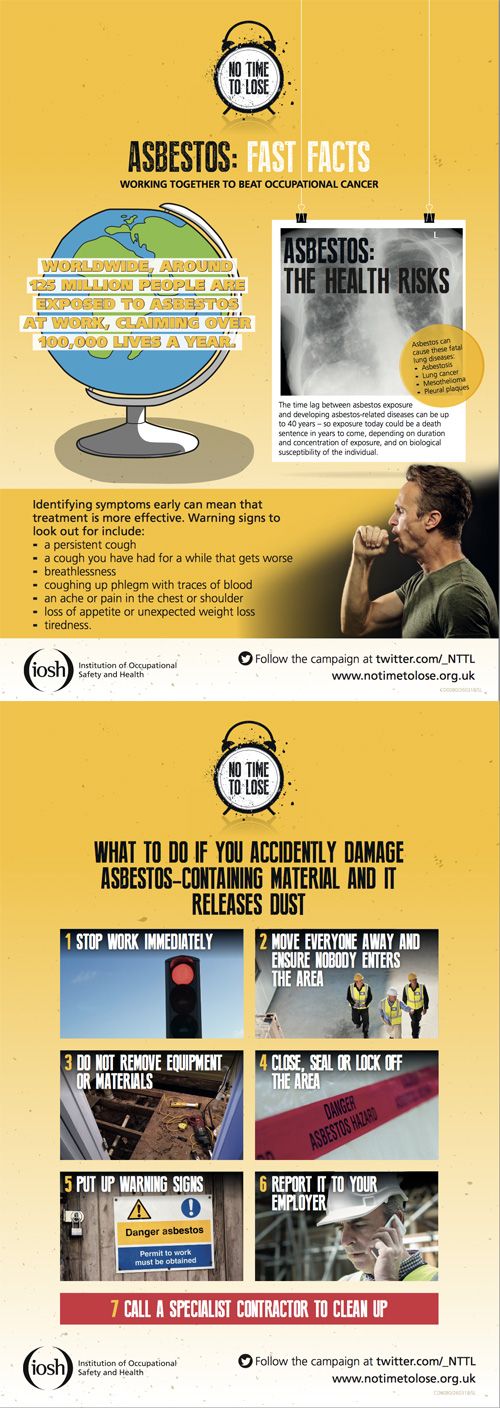 Nearly one in four UK construction workers believe they may have been exposed to asbestos fibres, placing them at higher risk of contracting terminal cancers later in life.
Nearly one in four UK construction workers believe they may have been exposed to asbestos fibres, placing them at higher risk of contracting terminal cancers later in life.
And with potentially half a million buildings containing this lethal mineral, employees across many sectors risk being exposed every day – continuing the trend of Britons having the world’s highest chances of dying from mesothelioma, the deadliest asbestos-related cancer.
The Institution of Occupational Safety and Health (IOSH) has revealed findings of a survey it commissioned to find out how much construction workers know about this hazard.
A third of survey respondents admitted they have never checked the asbestos register before starting work on a new site. Almost one in five said if they discovered asbestos they wouldn’t be clear about what to do.
Scientists and safety and health experts have expressed concern about the findings.
Dr Lesley Rushton, the new chair of the UK’s Industrial Injuries Advisory Council and an expert on workplace carcinogens, said: “What these new survey results confirm is that, while people have heard of asbestos and know what the effects of being exposed to it are, they’re not sure how to check if it’s present and they may not know what to do if they find asbestos.
“Uncertainty and ignorance surrounding how to prevent workers from breathing in the fibres is deeply worrying.”
Asbestos fibres, banned in the UK since 1999, can be found in many products including roofing, spray coatings, lagging, insulating boards, ropes, yarns and cloth. They are invisible to the naked eye but can cause fatal cancers like mesothelioma. Workplace exposures are reportedly responsible for at least 5,000 deaths in Britain every year.
The fourth phase of its No Time to Lose occupational cancer campaign was launched on Monday. Before this, IOSH commissioned Opinium to survey 500 construction workers to understand the scale of the issue.
While the survey was conducted among construction workers, the risks of asbestos exposure are present across many workplaces.
Mum-of-three Sandra Kellett, 60, suffers from mesothelioma having been exposed to asbestos while she was a trainee nurse working in an old hospital building.
She said: “Contracting this disease through no fault of my own has, I feel, robbed me of my future. It’s taken away all my hopes and dreams of making memories with my family and friends. Instead of planning for family get togethers, holidays and so on, I now find myself thinking about wills and funeral plans so my family won’t be burdened when I’m gone.”
Craig Foyle, IOSH president, said: “It is unacceptable for anyone in any workplace to be exposed to asbestos. Clearly, though, people are being exposed to it. In the decades to come, it is likely that these people and their families will still be suffering unless we all do something about it.”
For more information about the campaign and to download free resources to manage asbestos exposure, visit www.notimetolose.org.uk or follow the campaign on Twitter @_NTTL.



